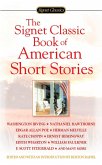A century ago, Henry Kitchell Webster (1875-1932) was a well-known, well-paid, and well-respected author. His stories frequently appeared in major magazines such as The Saturday Evening Post. In 1921, the New York Times printed his thoughts on "What Is a Novel, Anyhow?" But why should we bother with his novels, short stories, and plays today? Answer: Because his characters are charming and intelligent. They pursue their goals in intriguing ways. The situations are unusual: this volume includes several stories set in the business world (a rarity at the time). The endings are unpredictable, except in the sense that they are upbeat and satisfying. Webster's works hold their appeal because of that upbeat sense of life. If you enjoy the sculpture of Augustus Saint Gaudens or the paintings of Maxfield Parrish (both of whose lives overlap with Webster's), you'll probably find delight in Webster's works as well.
Hinweis: Dieser Artikel kann nur an eine deutsche Lieferadresse ausgeliefert werden.
Hinweis: Dieser Artikel kann nur an eine deutsche Lieferadresse ausgeliefert werden.








